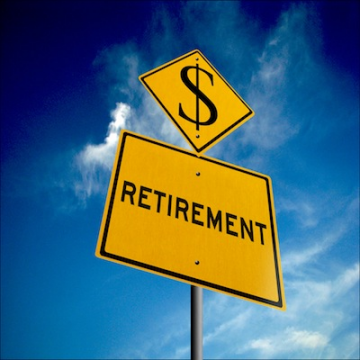
Less than four months ago, a research report released by the Washington, D.C.-based National Institute on Retirement Security (NIRS), using an analysis of U.S. Census data, found that even with the nation’s economic recovery, savings levels of working age Americans are inadequate for America’s retirees to rely on.
The NIRS report provides analyzes the U.S. Census Bureau’s Survey of Income and Program Participation data released in 2016 and 2017. Researchers took a look at workplace retirement plan coverage, retirement account ownership, and retirement savings as a percentage of income, and estimates the share of workers that meet financial industry recommended benchmarks for retirement savings.
“The facts and data are clear. Retirement is in peril for most working-class Americans,” says Diane Oakley, the report author, and NIRS executive director in a statement. “When all working individuals are considered — not just the minority with retirement accounts — the typical working American has zero, zilch, nothing saved for retirement,” she says.
Oakley added, “What this report means is that the American dream of a modest retirement after a lifetime of work now is a middle-class nightmare. Even among workers who have accumulated savings in retirement accounts, the typical worker had a low account balance of $40,000. This is far off-track from the savings levels Americans need if they hope to sustain their standard of living in retirement.”
American’s Not Prepared for Financially Surviving Retirement Years
Findings in NIRS’s 32-page research report, “Retirement in America: Out of Reach for Most Americans?,” released on September 18, finds that more than 100 million working-age individuals (57 percent) do not own any retirement account assets, whether in an employer-sponsored 401(k)-type plan or an IRA nor are they covered by defined benefit plans. Researchers say the data indicated that “those who do own retirement accounts have, on average, more than three times the annual income of individuals who do not own retirement accounts.”
According to the research findings, the typical working-age American has no retirement savings. When including all working individuals —not just individuals with retirement accounts—the median retirement account balance is $0 among all working individuals. For the typical workers who have retirement savings accounts, this individual only had a modest account balance of $40,000. “Furthermore, some 68 percent of individuals age 55 to 64 have retirement savings equal to less than one times their annual income, which is far below what they will need to maintain their standard of living over their expected years in retirement,” said the NIRS’s research report.
The research study findings indicate that 77 percent of Americans cannot meet conservative retirement savings goals for their age and income-levels based on working until age 67 even after counting an individuals’ entire net worth. “Due to a long-term trend toward income and wealth inequality that only worsened during the recent economic recovery, a large majority of the bottom half of Americans cannot meet even a substantially reduced savings target,” says the NIRS report.
The researchers say that federal and state policies can assist American’s in accumulating retirement income by strengthening the nation’s Social Security program, by states expanding access to low-cost, high-quality retirement plans, and helping low-income workers save. “States across the nation are taking key steps to expand access to workplace retirement savings, with enrollment in state-based programs this year starting in Oregon, Washington, and Illinois. Other proposals to expand coverage are on the national agenda but universal retirement plan coverage has not become a national priority. Finally, expanding the Saver’s Credit and making it refundable could help boost the retirement savings of lower-income families,” notes the NIRS report.
Assisting Rhode Islanders to Save for Retirement
In 2016, AARP Rhode Island released a survey of 459 Rhode Island small business owners (with up to 100 employees) to determine their thoughts about employee retirement benefits. Overwhelming, these business owners see a need for lawmakers to create a program to help working Rhode Islanders to save for their retirement years.
According to the AARP telephone poll findings of the small businesses, 76 percent say Rhode Islanders need a lot, some more encouragement to save for retirement. A whopping 82 percent agree that state lawmakers should support small business owners to offer employees a way to save.
Seventy-six percent of the respondents agree to being able to offer a voluntary, portable, retirement plans will provide them with a competitive edge to attract or retain employees, notes the poll’s findings.
Most small business owner respondents called on the Rhode Island General Assembly to support state legislation to create a basic, ready-to-go, privately-managed retirement plan for employees. The majority of small business owners who participated in the AARP Rhode Island survey agree that state lawmakers should support a plan to make it easier for small business owners to offer their employees a way to save for retirement.
In 2016, the Rhode Island General Assembly considered AARP Rhode Island’s so-called Work & Save legislation to assist working Rhode Islanders save for their retirement years by establishing a Private Employer IRA Program. But, with spiraling state deficits and the administrative costs of the program, the legislation was held for “further study” immediately killing the legislation.
With America’s aging population, with many not having adequate retirement savings, Congress must move to strengthen the Social Security program. But, the Rhode Island General Assembly must look for ways to expand access to workplace retirement savings through a state-based program. Not doing so may ultimately increase the state’s role in providing assistance to an increasing percentage of low-income older Rhode Island.
